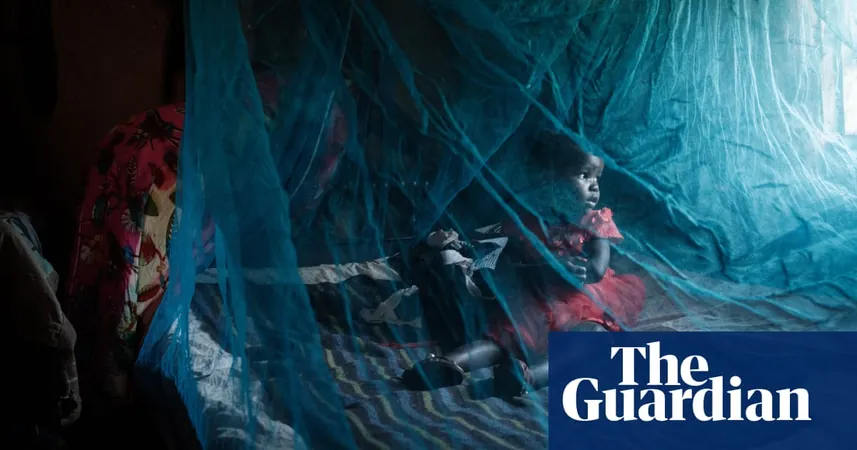
Alarming New Research Reveals Rise of Malaria Drug Resistance in Africa – What It Means for Children’s Lives
2024-11-14
Author: Ken Lee
Alarming Rise of Malaria Drug Resistance
Researchers have issued a stark warning following their groundbreaking study that identifies emerging resistance to artemisinin, a crucial malaria treatment, in young African children suffering from severe infections.
Presented at a major conference in New Orleans, this revealing new study conducted in Uganda found that one out of ten children hospitalized with malaria exhibited troubling signs of resistance to artemisinin, the frontline drug that has been vital in battling this deadly disease. Each year, malaria claims the lives of approximately 450,000 children under the age of five in sub-Saharan Africa alone.
Dr. Chandy John from Indiana University, who co-authored the study, stated: “This is the first study from Africa showing that children with malaria and clear signs of severe disease are experiencing at least partial resistance to artemisinin.” Alarmingly, among the 100 children observed, 11 demonstrated partial resistance linked to genetic mutations associated with treatment failure.
Dire Implications for Treatment
The implications of these findings are dire. Among the children who were assumed to have been cured, 10 experienced a resurgence of the same malaria strain within just one month. The results indicate that the combination therapy of artemisinin and lumefantrine – the “gold-standard” treatment – might not be as effective as previously thought.
This study was prompted by observations of slow treatment responses in some children enrolled in a separate project focusing on severe malaria cases. Dr. John emphasized, “Witnessing evidence of drug resistance before we initiated specific investigations is a troubling sign that we cannot ignore.”
Echoes of Southeast Asia's Past
Experts are sounding the alarm bells. Dr. Richard Pearson from the Wellcome Sanger Institute highlighted that the troubling situation mirrors the beginnings of drug resistance in Southeast Asia, which emerged 15 years ago with devastating consequences. The rising tide of malaria resistance to artemisinin therapies poses a severe risk as resistance can spread rapidly in areas with high transmission rates.
A Critical Health Challenge
Artemisinin, labeled a “critical drug” in malaria treatment, has been a game changer, especially for severe cases where intravenous artesunate is administered. Since its introduction over a decade ago, it has drastically reduced mortality rates in children, leaving experts and health organizations deeply concerned about the prospect of reverting to older, less effective treatments like quinine.
Dr. Alena Pance, a genetics lecturer at the University of Hertfordshire, emphasized the urgency of the situation: “Indications of resistance to such a critical drug are extremely worrying. The rapid and widespread nature of malaria transmission in Africa creates an environment conducive to swift resistance development.”
Need for Immediate Action
As health officials grapple with this alarming trend, the need for immediate and strategic action is more pressing than ever. The time is now to address these concerning findings before the world confronts a potential health crisis that could undermine years of progress in combating one of the deadliest diseases on the continent.


 Brasil (PT)
Brasil (PT)
 Canada (EN)
Canada (EN)
 Chile (ES)
Chile (ES)
 España (ES)
España (ES)
 France (FR)
France (FR)
 Hong Kong (EN)
Hong Kong (EN)
 Italia (IT)
Italia (IT)
 日本 (JA)
日本 (JA)
 Magyarország (HU)
Magyarország (HU)
 Norge (NO)
Norge (NO)
 Polska (PL)
Polska (PL)
 Schweiz (DE)
Schweiz (DE)
 Singapore (EN)
Singapore (EN)
 Sverige (SV)
Sverige (SV)
 Suomi (FI)
Suomi (FI)
 Türkiye (TR)
Türkiye (TR)